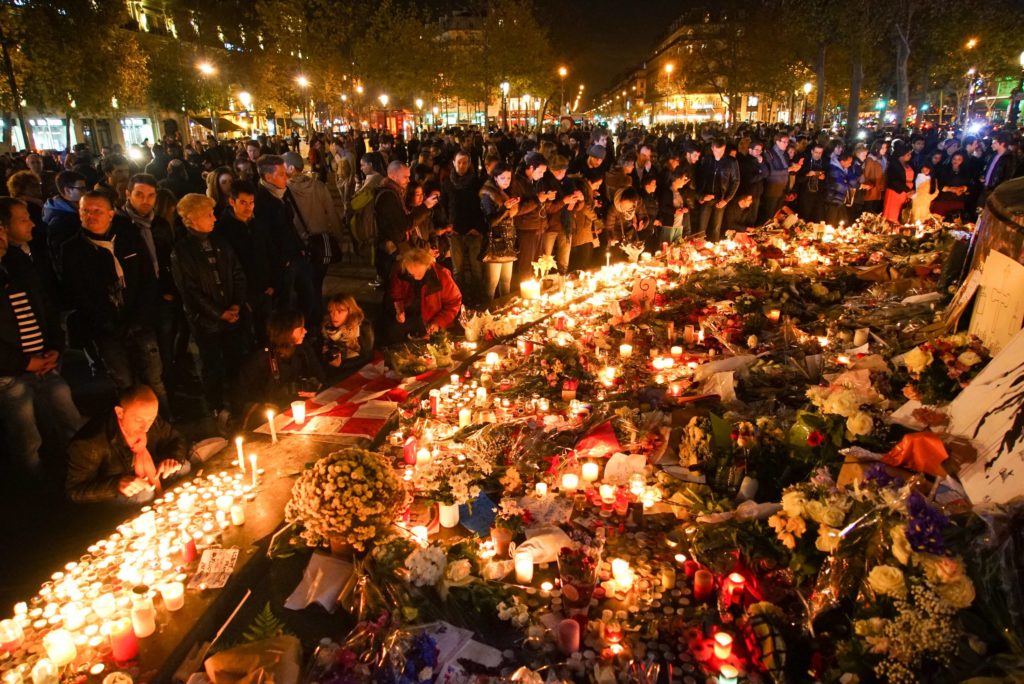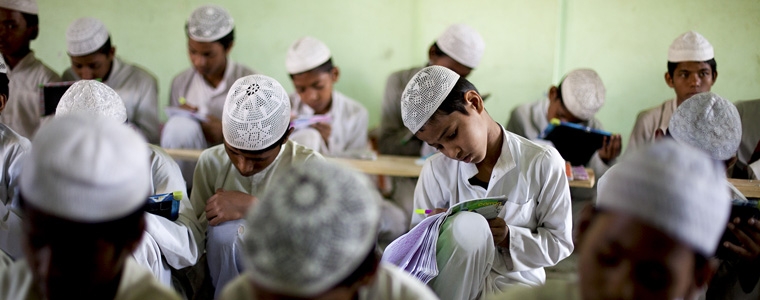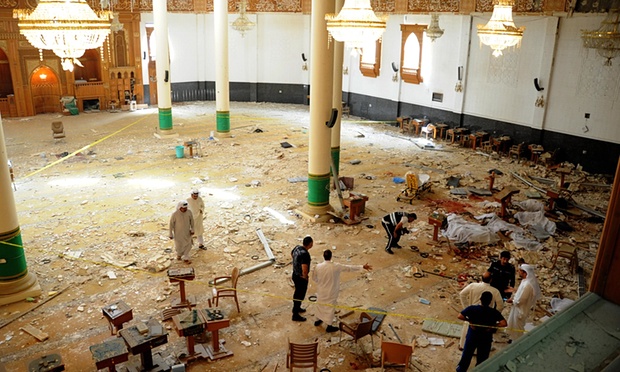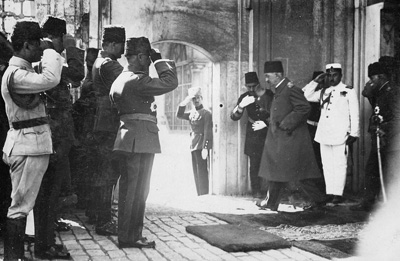
The world has got it wrong in analyzing the causes of its emergence and both qualitative and quantitative expansion. Any in-depth analysis of the hundreds of incidents carried out by Salafist jihadist groups must conclude that there is clearly a common factor to them, and this is the Salafi Jihadi understanding of the Islamic faith.
IT IS CERTAIN that the events that took place in Kuwait and Tunis and France on Friday 26 June 2015 or the events of November 13 in Paris[1], carried out by jihadi takfiri Salafist groups, will not remain merely passing events or mark the end of the bloodbaths that are being perpetrated in the name of Islam as long as the sparkle of this evil mentality shines on in the minds of men – and youths in particular – and roots itself deep in their hearts. They will probably become far worse for as long as world leaders fail to grasp the true roots underpinning its expansion and development.
The probability of their extending to other regions far outweighs any probability of their shrinking or receding. To any keen observer it is hardly a matter of surprise or mere chance that peaceful Kuwait, or sleepy N’djamena far away in the heart of the African continent, would be struck almost simultaneously, and for the first time in either case. It only confirms that the theatre of operations for these groups extends both vertically and horizontally, and that anything is possible; the events of Paris and Boston in the United States are not far from the mind.
The world has often been mistaken as to the aims of jihadist groups, by viewing them as the tools of intelligence services seeking to achieve objectives specific to these organisations. It took a long time to demonstrate how wrong this is when it became clear that these organisations operate in order to gain power for themselves, and that these are the ones who have succeeded in fooling the intelligence services and in exploiting their power, and even mocking them to the point of inflicting devastating attacks against their own headquarters!
As much as misunderstanding their aims, the world has also got it wrong in analyzing the causes of its emergence and both qualitative and quantitative expansion. Some analyses have gone so far as to ascribe this to issues of poverty and lack of opportunities for Arab youth, and have tended in some cases to interpret it as the result of the grip of tyranny and its accompanying political bottleneck in the Middle East . Others have even taken up the argument of the West’s double standards in its handling of the Palestinian issue.
But any in-depth analysis of the hundreds of incidents carried out by Salafist jihadist groups must conclude that there is clearly a common factor to them, and this is the Salafi Jihadi understanding of the Islamic faith. This is the only connecting thread between the killing of schoolchildren in Pakistan and Nigeria, bombings in the streets of Boston, Mumbai, or Moscow theaters or housing complexes in Al Khobar, trains in London and Madrid, shops in Paris, hotels in Amman, cafes in Cairo, tourist sites in Tunis or antiquities in Afghanistan and many, many others still. But to uncover the truth of the matter, we have the right to ask: What is the justification or the purpose behind Mulla Omar’s adventures in Afghanistan and Abu Bakr al-Baghdadi’s maraudings in Syria, choosing arenas that are geographically, and ironically, far removed from Israel? Do they have a clear vision or an obvious programme other than killing and lynching under the pretext of reproducing the early Islamic state in our present world, a state that can no longer reproduce the conditions for its restoration for reasons graspable even by those with mediocre mental capacities?
Any in-depth analysis must conclude that there is clearly a common factor to them
Any fair-minded examination of all these events, and any deep reading of the intellectual and political discourses of these groups, must lead to the conclusion that there is an intellectual source to it, connected one way or another to regressive Salafist Islamic schools that look upon contemporary world issues through a seventh-century lens, and which do not give any consideration to the enormous developments in human life in all its respects, nor respect the principle that Islam is valid for all times and places. A validity, that is, that assumes a continuous development in the system of jurisprudence, and that one should not stop at some threshold established by the pious Salaf [‘Ancestors’] who, in their own era, exercised independent legal reasoning and forged the required and necessary harmony between the requirements of the religion and the interests of people at the time. Contemporary traditional Salafist schools have failed to develop the achievements of the Salaf in the matter of paradigms and rules. In fact, unfortunately, those rules have been solidified and afforded a sanctity similar to that granted to the Qur’ān and the Sunna. And this is despite the complex, developing issues of humankind and the people’s spiritual, mental and material needs that now differ from those in the light of which the traditional rules of jurisprudence were constructed centuries ago.
This understanding has led to the emergence of groups of political Islam in their various forms, such as the Muslim Brotherhood movement that adopted an opportunistic approach and deceived people by its espousing a bold intellectual programme with the ability to address the dilemma of modernity faced by Muslims. Yet they proved beyond any reasonable doubt that religion for them was nothing other than a means to achieve power and secure control over people’s liberties and rights in the name of religion. In fact all that this movement achieved was to furnish traditional Salafism with activist and organisational capacities which, in the end, gave birth to these Salafist jihadi takfiri groups.
Thus we may in all confidence attribute to the West a great deal of responsibility for the world’s ignorance of their aims and their real roots, given the considerable intelligence mechanisms that it possesses and its unparalleled scientific research capacities. And this in addition to the leading role it plays in directing political, military and security operations over the entire planet. All in all, the result is that just as the Western world has erred in its understanding of the goals of these groups and the reasons as to why they emerge, they err now too in determining how to combat them. It is a fortunate coincidence, however, that the solution should come from the Arab countries themselves. Perhaps because they are the most exposed to its danger, and perhaps because the intellectual sources of these terrorist organizations lie deeply embedded in their collective culture.
Not all that long ago, in an extremely important article in the newspaper Middle East dated September 28th 2014, and representing here the United Arab Emirates which has succeeded in achieving the best contemporary formula for reconciling tradition with contemporaneity, origin and age, Sheikh Mohammed bin Rashid said the following:
Daesh is not only a terrorist organization, but a malicious idea. It is an ideology which Daesh themselves espouse, and which al-Qaeda also espouses. It is also the same one which underpins the sisters of al-Qaeda in Nigeria, Pakistan, Afghanistan, Somalia, Yemen and the countries of the Arab Maghreb, and in the Arabian Peninsula, and the very same one that has begun making inroads into Europe, America and other countries of the world.
He went on to say, that
the military structure of the organization can be defeated within a short period to come, with the capacities available to the new international alliance. The UAE will be an active part of this alliance in cooperation along with countries that can assume the responsibilities of confronting this new threat. But what about the intellectual structure of this organization? The military infrastructure cannot be separated from the intellectual infrastructure upon which this organization depends… We must confront this evil ideology with an enlightened, open-minded thought, one that can accept and co-exist with the other, an enlightened conception of our Islamic, Abrahamic religion, one which calls for peace and forbids the shedding of blood, one which safeguards honour and builds the world, which directs mankind’s energies towards doing good and helping his fellow man. Suicidal youths that hasten towards death due to belief in a malicious thinking can only be stopped by a mindset that is stronger still, one that can guide them to the right path, prevent them from committing suicide, and convince them that God created us for the purpose of building the earth, not for destroying it.
The intellectual sources of these terrorist organizations lie deeply embedded in their collective culture
So we are facing a relatively new reality, one where the United Arab Emirates has shown the lead with all its exploratory building of a modern state in which its indicators of progress rival those found in the most advanced countries of the world, but without compromising the best of its religion’s values and virtues. It has become clear at the highest levels of governance in this state that the basis for freeing oneself of the growing phenomenon of extremism and violence that dogs the Middle East and the rest of the world lies in the vital task of disseminating an alternative thinking, one that takes the place of this all-consuming system, or as the statesman Mohammed bin Rashid expressed it above:
Suicidal youths that hasten towards death due to belief in a malicious thinking can only be stopped by a mindset that is stronger still, one that can guide them to the right path, prevent them from committing suicide, and convince them that God created us for the purpose of building the earth, not for destroying it.
This is a clear call for sincerity and represents a vision and a strategy that, if put into action, will doubtless bear fruit in peace, progress and growth.
As such, and for as long as the basis of the problem remains clear and prospects for a solution are identified, the question of the moment is how to apply and implement these inspiring visions on the ground. What is clearly demanded is an answer to the following questions: Which institutions of state and society are to be entrusted with the renewal of religious discourse and the eradication of the distortions that have led us to where we are now? Is this to be done through the same institutions that spawned this thinking in the first place and fostered its luminaries? Or do we need to look for new institutions and new tools? Should we leave the citizens’ media and culture to the domination of terrorists, even tacitly? Or to sheikhs and some intellectuals who seem to admire the daily diet of slaughter, so as to spite America and the West, or to those who show themselves highly creative in justifying terrorism as some form of natural reaction to western terrorism? Or should we initiate new institutions with new people who can undertake religious renewal and present this to people in a convincing, positive way?
As I see it, the trajectories and means should be many and varied. The official religious institutions – throughout history and despite their generally conservative tendency – have the capacity to absorb an official discourse and work within its framework, on the grounds that obedience to the authorities is Islamic. In the same way, irrespective of their relative independence, the official religious institutions need the state and its capacities in order to survive. It is worth mentioning that these institutions have no small number of enlightened scholars and preachers, but the predominance of conservatives among them continues to constitute a font of intellectual terrorism. This requires state intervention at the very heart of the equation, something that can perhaps be demonstrated by the bold ideas of Shaykh Kalbani and Shaykh al-Ghamdi in Saudi Arabia, both of whose voices could have failed to register were it not for their understanding of the need for the Saudi state for this sort of thinking.
In my view, one should not be over-optimistic about the ability of these institutions on their own to bridge the gap between, on the one hand, the aspirations of the people and the current level of human development and, on the other hand, the conservative, traditional heritage. It is a gap that needs more daring and capable personalities to be brought to prominence, people who can reform the inherited jurisprudential methodologies that have, with the passage of time, acquired an infallibility, despite the fact that Islam rejects at the very outset granting a human being any religious authority, and has denounced such a thing in other religions, as stated in the verses:
They have taken as lords beside Allah their rabbis and their monks [Qur’ān IX, 31]
Follow that which is sent down unto you from your Lord, and follow no protecting friends beside Him. Little do ye recollect! [Qur’ān VII, 3]
It also requires bridging this gap, and ensuring the sustainability of harmony and balance between the requirements of the religion and the demands of everyday life. It needs strong institutions supported by the state and society, which will have the ability to positively impact upon those who have overloaded their minds with concepts as far removed as you could possibly get from the goals and purposes of the faith and who have become like those whom the Lord severely censured, when He stated:
The likeness of those who are entrusted with the Law of Moses, yet apply it not, is as the likeness of the ass carrying books [Qur’ān LXII, 5]
Be not as those who say, we hear, and they hear not. Lo! the worst of beasts in Allah’s sight are the deaf, the dumb, who have no sense [Qur’ān VIII, 21-22]
The clarity of vision among the leaders of the UAE today, and the wishes of the people to live in dignity and contribute to building the world, in addition to the presence of a growing sector of enlightened individuals, represents an opportunity that needs to be invested in strongly so as to remove the nightmare with the least possible pain and suffering. In our estimation, the media’s overwhelming focus on political issues, at the expense of questions of enlightenment and renewal in a territory where there are the best conditions for change, is a focus that in one way or another has contributed to shackling the minds and the hearts of millions to the takfirist thinking that has countless numbers of pulpits for its mobilization and dissemination.
We can therefore see that there is a significant role for a responsible media to play in supporting the desired change if it makes some essential modifications to its policies and priorities, so as to conform and harmonize with the requirements of this phase. To do this it must become less reticent in their dealings with the leading figures of enlightenment, who by now number in their hundreds. This reticence – deliberately fostered by traditional jurisprudence with their claims that any talk of renewal or the civil state (as the Emirates are engaged upon now) – constitutes a departure from the Muslim community and a sign of loyalty to the people of Disbelief. The task these enlightened individuals set themselves is a considerable one: to correct the inherited concepts nestled deep in the mind with concepts more reflective of the times and those closest to the spirit of religion. Consequently, we should remove this reticence and take from them everything that could possibly help the process of renewal and gain acceptance among those who are the target of this renewal.
And it is not only the media that needs to keep up and disseminate a modern conception of the faith, one based on the enrooting of the values of love and the refutation of takfiri arguments within this same religion. Indeed, there is a pressing need to expand specialist capacities for dealing with jihadist takfiri thought in research centres and publishing houses, and for convening ongoing conferences for those concerned with this. It may require the creation of a government agency with broad powers to transform the understanding of the UAE leaders as to the facts on the ground, and supervise the initiatives of individuals and institutions, ensure they are going in the right direction, follow-up their results and in the light of these results lend them full support.
And to guarantee the greatest possible success a coordination and cooperation should be secured with their counterpart agencies in Arab and non-Arab countries alike.
[1] On this day a factory was attacked in France and an employee decapitated, in Tunisia a terrorist opened fire at a hotel in Sousse, killing 37 tourists and a suicide attack on a Shiʽa mosque in Kuwait left a total of 25 dead and over 200 wounded. On November 13 a series of coordinated terrorist attacks in Paris killed 130 and injured 368.



